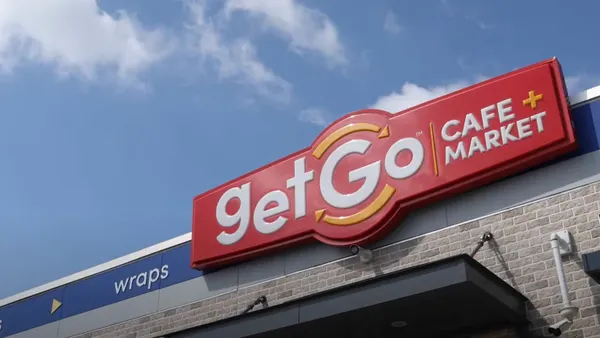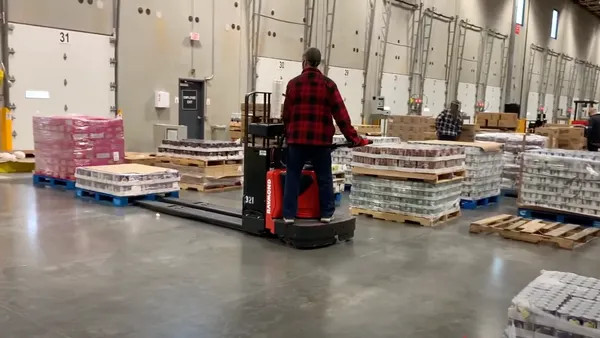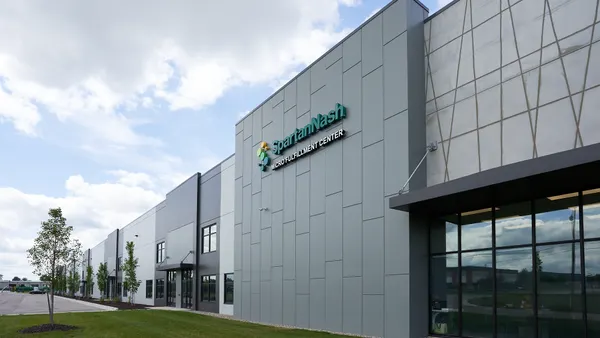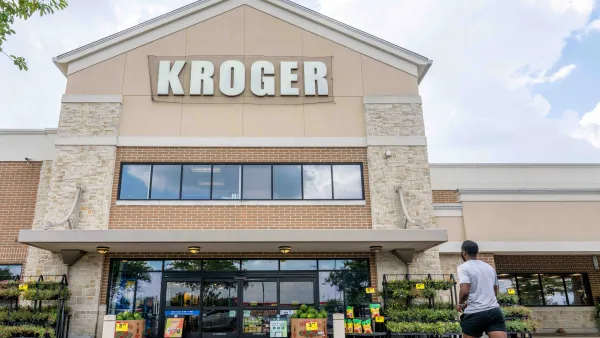UPDATE: June 26, 2020: Albertsons will sell 50 million shares at $16 per share, below the range it provided when it launched its initial public offering, the grocer said Thursday. The shares began trading today.
Dive Brief:
- Albertsons has launched plans to become a public company through the sale of 65.8 million shares on the New York Stock Exchange, the grocery chain announced Thursday afternoon. The company, which plans to trade under the ticker symbol “ACI,” did not give a date for when the stock offering will take place, saying in its S-1 filing with the Securities and Exchange Commission that it would take place “as soon as practicable.”
- The grocer, which runs 2,252 stores under banners including Albertsons, Safeway, Vons and Shaw’s, estimates that its stock will begin trading in the range of $18 to $20 per share, suggesting that the company could raise between $1.2 billion and $1.3 billion when it goes public.
- In its filing, Albertsons pointed to its success during the pandemic as a competitive advantage and said it is in a strong position to thrive. “Since the onset of the coronavirus (COVID-19) pandemic, we have gained market share across the majority of our markets. We believe that our competitive position will continue to strengthen as a result of customer receptiveness to our response to the challenges of the coronavirus (COVID-19) pandemic and the strength of our supply chain,” the company said.
Dive Insight:
Albertsons is going public as the supermarket industry rides a wave of strong financial results stemming from the COVID-19 pandemic. The chain, which posted $62.5 billion in revenue during its latest fiscal year, said identical store sales surged 34% on a year-over-year basis between March 1 and April 25.
But Albertsons acknowledged that the same unprecedented conditions that have flooded it — and its competitors across the grocery space — with business during the past few months also represent a significant challenge. The pandemic has saddled the company with a slew of extraordinary expenses, including the cost of outfitting its stores with safety equipment, providing employees with protective gear like face masks and temporarily paying its workers higher wages.
The company, which is owned by an investment group headed by private equity firm Cerberus Capital Management, last month sold a 17.5% stake to Apollo Global Management for $1.75 billion, giving the company an implied valuation of $10 billion. Albertsons filed plans for its IPO with federal regulators in March.
Looking ahead, Albertsons could be buffeted by the economic downturn caused by the pandemic, especially if shoppers elect to cut down on spending or shop elsewhere. “Consumers may reduce spending on non-essential items, purchase value-oriented products or increasingly rely on food discounters in an effort to secure the food and drug products that they need, all of which could impact our sales and profit,” the grocer noted in its SEC filing.
Another key risk factor for Albertsons is that the company has been carrying a substantial debt load, and owed about $8.5 billion as of Feb. 29. That is down from more than $10 billion in early 2019, but the indebtedness still represents a threat, in part because servicing it saps cash the company could otherwise use to build its business.
Albertsons is approaching the stock market after two aborted attempts at launching an IPO during the past few years. The chain reached an agreement to purchase pharmacy operator Rite Aid in a deal that would have allowed it go public, but had to back off in the face of criticism from Rite Aid shareholders who believed the proposed $24 billion price was too low.
In 2015, Albertsons delayed plans to go public after concluding that market conditions were too rocky for it to proceed.
Albertsons has taken numerous steps in preparation for its push onto the public markets, including hiring CEO Vivek Sankaran last year and naming new executives in divisions like digital and merchandising. The company also deleveraged its balance sheet, bringing its debt-to-EBITDA ratio below 3X.
In its S-1 filing, Albertsons touted its push for increased efficiency and better shopper experiences as momentum drivers. The company has remodeled 875 stores over the past three years, made home delivery available from the majority of its stores and expanded store pickup to nearly 650 stores. Albertsons spent $375 million on digital and technology projects last year and now tallies just over a quarter of its sales in private label brands.











